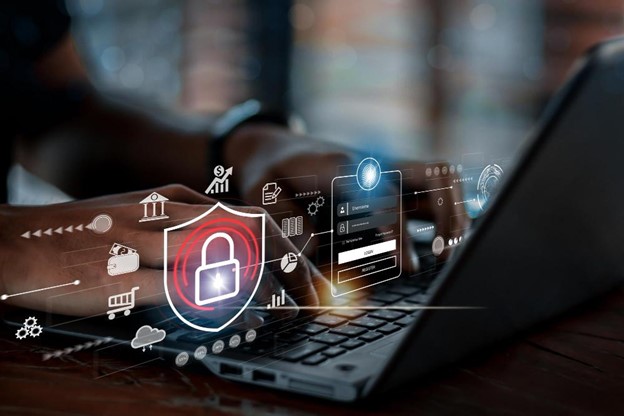The digital landscape has grown to new heights, and this means the threats are more than ever. Cybersecurity has always been a key factor in protecting a company’s setup and its employees, given the risks present everywhere and every second.
Nowadays, there’s an increasing reliance on technology. The interconnectedness of digital systems brings with it an increasing need for cybersecurity. A single security breach can result in damage to a brand’s reputation. A cyber attack can have long-term negative effects on business operations. Implementing strong cybersecurity measures has become a necessity.
What Is Cybersecurity?
Cybersecurity is the protection of internet-connected devices and services from cybercriminals. It is necessary to protect against all forms of cyber attacks. Using strong cybersecurity measures preserves the confidentiality of information and trust in digital systems.
Using various technologies, processes, and methods defends against cyber attacks. Numerous different areas need protection, such as applications and mobile devices to networks.
Common Cybersecurity Threats
The pandemic and remote working have created an environment that cybercriminals can exploit. They constantly develop new techniques to exploit software, device, and network vulnerabilities. Phishing, identity theft, and the spreading of malware and ransomware are becoming increasingly common.
Malware Attacks
According to cybersecurity analysts, March 2023 was a prolific month for malware attacks. Malware is malicious software that causes harm to computer systems.
To effectively combat malware, it is crucial to have the best malware cleaning apps installed on devices. These apps can detect and remove malicious software from devices. They ensure they are safe and secure from potential cyber threats.
The Importance Of Cybersecurity
The rise of cloud services, smartphones, and the Internet of Things (IoT) has brought many changes. Many potential security vulnerabilities didn’t exist a few decades ago. Good cybersecurity measures are essential to keep trust in online services, as they foster a secure digital environment.
- Protect sensitive data: Digitization of data has highlighted the need to protect sensitive information. A cyber attack that results in a data breach can expose trade secrets, intellectual property, and other sensitive information. The theft of valuable intellectual property can result in financial losses. This can have an adverse effect on industries and the economy.
- Prevent financial loss: Cybercrime Magazine predicts that cybercrime will cost businesses across the world $10.5 trillion annually by 2025. Cybersecurity in the financial sector is vital as fraud and extortion are common. The costs of recovering from a cyber breach can be substantial. This can involve incident response, system repairs, and forensic investigations.
- Safeguard critical infrastructure: Power grids, healthcare facilities, transportation systems, and communication networks have one thing in common. They all rely on interconnected computer systems. An attack on these systems can disrupt essential services and impact the safety of individuals. Malicious actors may intentionally exploit vulnerabilities in systems. This can cause disruption to vital operations.
- Protect privacy: As businesses collect more consumer data, concerns about data privacy have become more prominent. Adequate cybersecurity measures are essential to help protect personal information. Companies need to ensure cybersecurity compliance. If they don’t, they can lose the trust of customers. Customers must know their bank account details, social security numbers, and credit card information are protected.

The Impact of Cybercrime
Cybercrime has an impact on individuals and society as a whole. Much of its impact is due to insufficient focus on security best practices. A lack of focus on cybersecurity can damage a business in various ways:
- Theft of corporate information, disruptions in trading, and repairing system damage have an economic cost.
- Poor coverage in the media and loss of current and future customers to the competition has reputational costs.
- Violating GDPR and other data breach laws could result in having to pay significant regulatory fines or sanctions.
Some of the factors driving cybercrime include the distributed nature of the internet and the ability of cybercriminals to attack victims all over the world. This makes policing extremely difficult. The proliferation of mobile devices and the Internet of Things create more attack surfaces. It is difficult to understand the direct and indirect costs of cybercrime because it is so complex.
What can Businesses do?
It is no longer enough for businesses to rely on cybersecurity solutions such as antivirus software and firewalls. Passwords alone are not enough to keep data safe. The new methods powered by artificial intelligence (AI) and social engineering can circumvent traditional security controls.
Businesses need to spend money on strong cyber security measures. If they do so, they can protect their assets which may be worth millions of dollars. They can win the trust of consumers, gain more credibility and earn more revenue.
Businesses need to start by educating their employees. Many security vulnerabilities in businesses are due to the actions of employees. It is easy for an employee to fall prey to a clever phishing attack inadvertently.
- Educate employees: All businesses must train their employers to understand different cybersecurity threats and how to deal with them. Regular training is essential as cybercriminals become increasingly sophisticated and keep coming up with new methods.
- Insist on strong BYOD policies: With the increased number of remote workers, many companies have a bring-your-own-device (BYOD) culture. The personal devices of remote workers pose one of the commonly overlooked cybersecurity risks employers need to address today. They must insist on strong BYOD policies to ensure all remote employees use best security practices.
- Monitor third-party vendor risks: Businesses need to monitor third-party vendor risks. Almost 60% of data breaches are due to compromised third-party vendors. By shutting down these leaks, many incidents could be prevented.
- Use intelligent cloud security solutions: With extensive use of the cloud, cybercriminals can take advantage of vulnerabilities. As cloud storage grows, businesses need to employ intelligent cloud security solutions.
Conclusion
In an increasingly connected digital world, cybercrime is on the rise. Even small businesses are at risk of suffering irreparable reputation damage as a result of a data breach. Many security vulnerabilities didn’t exist before.
Businesses need to be aware of them and train employers to recognize them. They need to have cybersecurity programs, or they could become the target for cybercriminals.
